[Report] "Jews and Arabs: Intimate Enemies" by Meron Benvenisti
On March 15, 2010, we held Dr. Meron Benvenisti’s lecture titled “Jews and Arabs: Intimate Enemies” on the Komaba campus of the University of Tokyo.
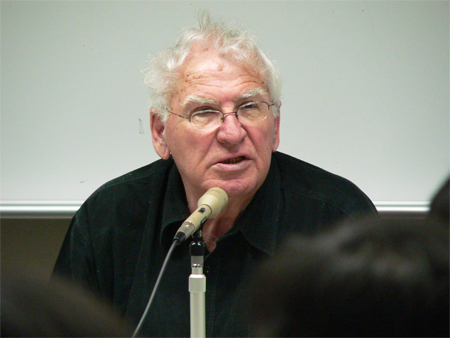
First Dr. Takanori Hayao (UTCP) introduced Dr. Benvenisti’s background, standpoints and main works. Dr. Benvenisti’s father was a sephardim from Greece, and his mother was from Ashkenazim in Lithuania. He was born in Jerusalem in 1934 before the foundation of Israel. Dr. Hayao mentioned that Dr. Benvenisti is an independent scholar who does not belong to any official institutions or universities.
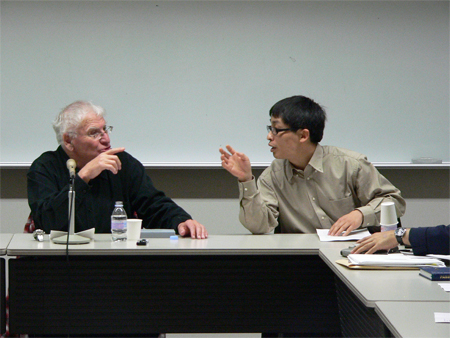
In his lecture, Dr. Benvenisti first confirmed the long history of coexistence between Arabs and Jews in several areas, and then he started to explain today’s Israel- Palestine problem. In Israel, we can find varieties of Jews and Palestinians, and they are divided into many groups. Among the Jews, a million of Russian Jews are living in Israel, keeping their Russian culture and identity. On the one hand, Palestinians are generally divided into five groups: Palestinians in Gaza, West Bank, East Jerusalem, Israeli-citizen Palestinians and Diaspora Palestinians. Each of them has own goal .
After the Third Middle Eastern War, Israel occupied most of the Palestine and then Jews have kept in touch with Palestinian Arabs more than before the occupation.
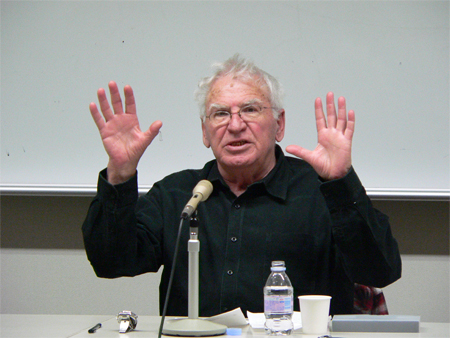
Dr. Benvenisti explained the relation between Arabs and Jews with using the term “intimate enmity”, which is the title of this lecture. The “enmity” between Arabs and Jews became a kind of bond which connects Arabian society and Jewish society in Israel and Occupied Palestine. In the status quo, it is hardly possible to solve this situation with the so-called “Two State Solution”. This is because it is impossible for Palestinians to accept any plan of “partition”, which results in the failure of all negotiations for the solution.
According to Dr. Benvenisti, diplomatic negotiations for peace can never solve the great enmities between both societies, and we must solve this problem by an intercommunal contact between two societies, even though it takes long time. There is no way to share one land between Palestinians and Jews and to establish one state if we would like to solve this great enmity between Arabs and Jews not by the “two state solution”. Dr. Benvenisti insisted on the advantage of “One State Policy” to seek the way for the coexistence of Jews and Palestinians. Last, Dr. Benvenisti prompted us to think for the solution and then perhaps we can reach a new paradigm.
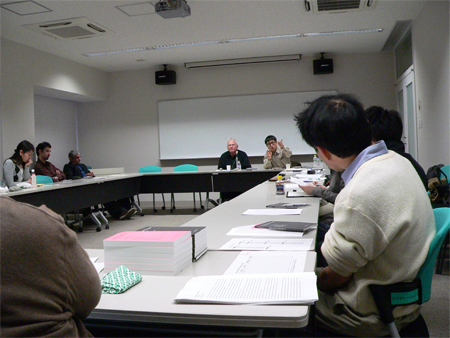
After his lecture, we had enough time to ask questions. We talked about the problem of the “Wall” between the West Bank and Israel Proper, the return of Diaspora Palestinians, the role of education and so on. One of the participants indicated that Dr. Benvenisti’s lecture is greatly based on a kind of nostalgia for the “land” but new Jewish immigrants do not share such nostalgia. Dr. Benvenisti admitted “romanticism” in his approach; however, he indicated that we could universally find lots of love for land and home.
The Israeli-Palestinian problem is one of the most painful tragedies after the World War II. Even though Japan is geographically far away from Israel and Palestine, Japanese also face this issue and try to consider how to solve this problem as Dr. Benvenisti emphasized in his lecture. We must face this problem until it is solved.
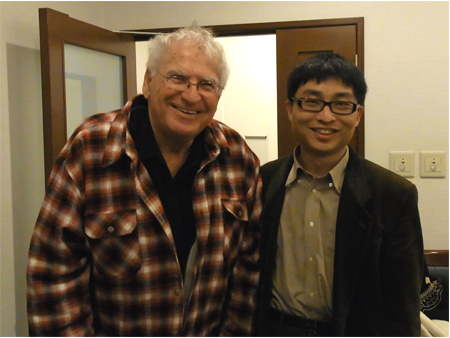
(Written by Naofumi ABE)






